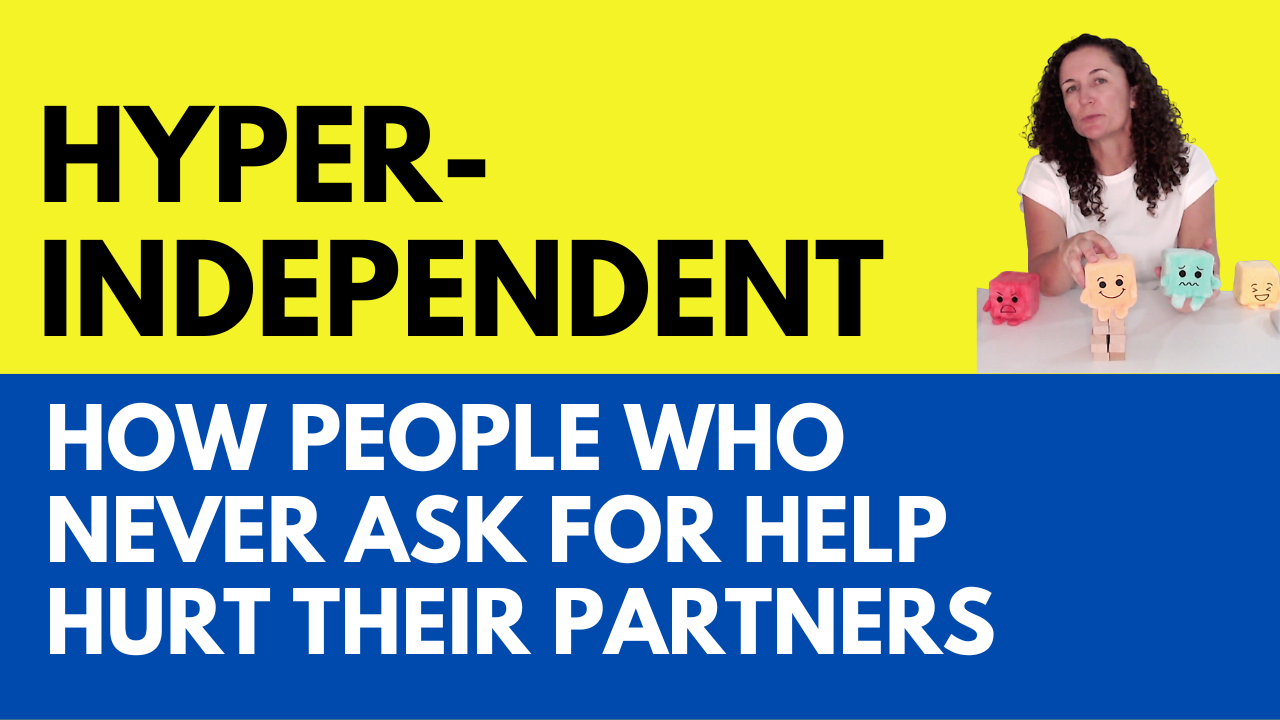Never asking for help (hyper-independent) is an emotionally abusive wall that’s often confused as a boundary…
This statement created a lot of questions and comments on my last video so let’s unpack it.
Relationships are, by nature, inter-dependent.
In a healthy relationship, we create the space each person needs, when they need it, so we can maintain own sense of self while still being a supportive and responsive partner.
A hyper-independent partner, who never asks for help or what they need, constantly pushes for more and more space as the developing closeness of the relationship triggers their survival mechanism to preserve their sense of self and autonomy at all costs. They fear being vulnerable and reliant on another person and getting trapped.
If both partners are hyper-independent, they may co-exist in this space for quite sometime but eventually feel lonely and disconnected.
But if one partner is not hyper-independent, they will start to worry about the distance and articulate a need for being closer. Triggering the hyper-independent person to start putting up a wall for protection, interrupting the flow of communication of needs and provision of support.
As the wall grows, a power dynamic is created. The originally secure partner is destabilized by the behaviour as their sense of security is undermined. While the hyper-independent partner resist being asked to give more and resents being relied on.
The hyper-independent person starts to see their partner as weak and needy. Two characteristics the hyper-independent person prides themselves on never being and has no respect or tolerance for. Eventually they detach from the relationship and either leave or make it so intolerable that the other person leaves.
Being alone again, the hyper-independent person feels their sense of balance being restored and they feel relief and happiness.
When you isolate yourself you’re also abusing yourself by repressing your emotions and neglecting your needs.
You may feel that this is the only way to cope and if you lift the lid and let others in, then you’ll be too vulnerable. But lifting the lid is the only way to get rid of that heavy feeling and to let feelings of freedom, calm and joy into your life.
The most beautiful moments happen in life through shared experiences with other people.
If you stay up on that wall by yourself, and don’t practice healthy coping skills and testing out who you can trust and rely on. Then when something really bad happens and you do need help, you won’t know how to lower yourself off the edge to safety.
You may believe your hyper-independence is keeping you safe but those close to you, who care deeply, can see your pain and suffering, but they don’t know how to reach out and help because you’ve created so much distance.
And all the while you may be secretly hoping someone helps without you having to ask, afterall, shouldn’t they just know?

